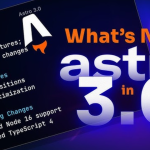Certainly! Here’s a rewritten article titled “Mastering Python Programming: A Comprehensive Guide for Beginners”:
Mastering Python Programming: A Comprehensive Guide for Beginners
Python is one of the most popular and versatile programming languages in the world. Known for its simplicity and readability, Python is an excellent choice for both beginners and experienced developers. Whether you’re new to programming or looking to expand your skill set, this comprehensive guide will take you from a beginner to a master of Python programming.
Why Learn Python?
Before we dive into the learning process, let’s understand why Python is a fantastic choice:
- Ease of Learning: Python’s syntax is clear and easy to read, making it an ideal language for beginners. You can focus on learning the principles of programming without getting bogged down in complex syntax.
- Versatility: Python can be used for a wide range of applications, including web development, data analysis, machine learning, and more. It’s a tool that can open many doors in the world of technology.
- Vibrant Community: Python has a large and active community of developers. This means that you’ll have access to a wealth of resources, libraries, and support throughout your journey.
- In-Demand Skill: Python developers are in high demand across various industries. Learning Python can open up exciting career opportunities.
Now, let’s embark on your journey to mastering Python.
Getting Started
1. Installing Python
Before you can start programming in Python, you’ll need to install it on your computer. You can download Python for free from the official website, and it’s available for Windows, macOS, and Linux.
2. Using an Integrated Development Environment (IDE)
An IDE is a software application that provides tools for coding, debugging, and running your Python programs. Popular Python IDEs include PyCharm, Visual Studio Code, and IDLE (Python’s built-in IDE).
3. Your First Python Program
Let’s begin with a simple “Hello, World!” program:
print("Hello, World!")Once you’ve written this code, save it with a “.py” extension and run it. You should see “Hello, World!” displayed on your screen.
Basic Concepts
4. Variables and Data Types
In Python, you can create variables to store data. Some common data types include integers, floats, strings, and booleans. Here’s an example:
name = "John" age = 25 height = 1.75 is_student = True5. Conditional Statements
Conditional statements allow your program to make decisions. The if, elif, and else statements help control the flow of your program:
if age >= 18: print("You are an adult.") else: print("You are a minor.")6. Loops
Loops let you repeat a block of code multiple times. The for and while loops are essential for automating repetitive tasks:
for i in range(5): print(i) # Output: 0, 1, 2, 3, 47. Functions
Functions allow you to group code into reusable blocks. Here’s how you define and use a function:
def greet(name): return f"Hello, {name}!" message = greet("Alice") print(message) # Output: Hello, Alice!Intermediate Topics
As you become more comfortable with Python, you can explore these intermediate topics:
8. Data Structures
Python provides various data structures, including lists, dictionaries, and sets, which are essential for organizing and manipulating data efficiently.
9. Exception Handling
Learn to handle errors gracefully with try-except blocks, ensuring your programs don’t crash unexpectedly.
10. Object-Oriented Programming (OOP)
Python supports OOP, which allows you to create reusable and structured code using classes and objects.
Advanced Python
Once you’ve mastered the basics and intermediate concepts, you can explore more advanced Python topics, such as:
11. File Handling
Work with files, reading and writing data, and handling different file formats.
12. Web Development
Learn web frameworks like Django and Flask for creating web applications.
13. Data Analysis and Visualization
Use libraries like NumPy, Pandas, and Matplotlib for data analysis and visualization.
14. Machine Learning and AI
Explore machine learning with libraries like TensorFlow and scikit-learn.
Mastering Python
To truly master Python, it’s essential to work on projects, collaborate with others, and keep learning. The Python ecosystem is vast and continually evolving, so staying up-to-date is crucial.
Here are some final tips for your Python journey:
- Online Courses and Tutorials: Utilize online courses, tutorials, and forums like Stack Overflow to enhance your knowledge.
- Practice Coding: Regular practice is key to mastering any programming language. Try coding challenges and exercises on platforms like LeetCode or HackerRank.
- Contribute to Open Source: Contributing to open-source projects is a great way to gain real-world experience and collaborate with other developers.
- Stay Curious: Python is a versatile language with a lot to offer. Keep exploring, and you’ll find Python’s power in various domains.
Remember, becoming a master in Python or any programming language takes time and dedication. Enjoy the learning process, and don’t be afraid to make mistakes – they’re valuable learning experiences.
So, start your Python journey today and work your way from a beginner to a Python master. The possibilities are endless!









